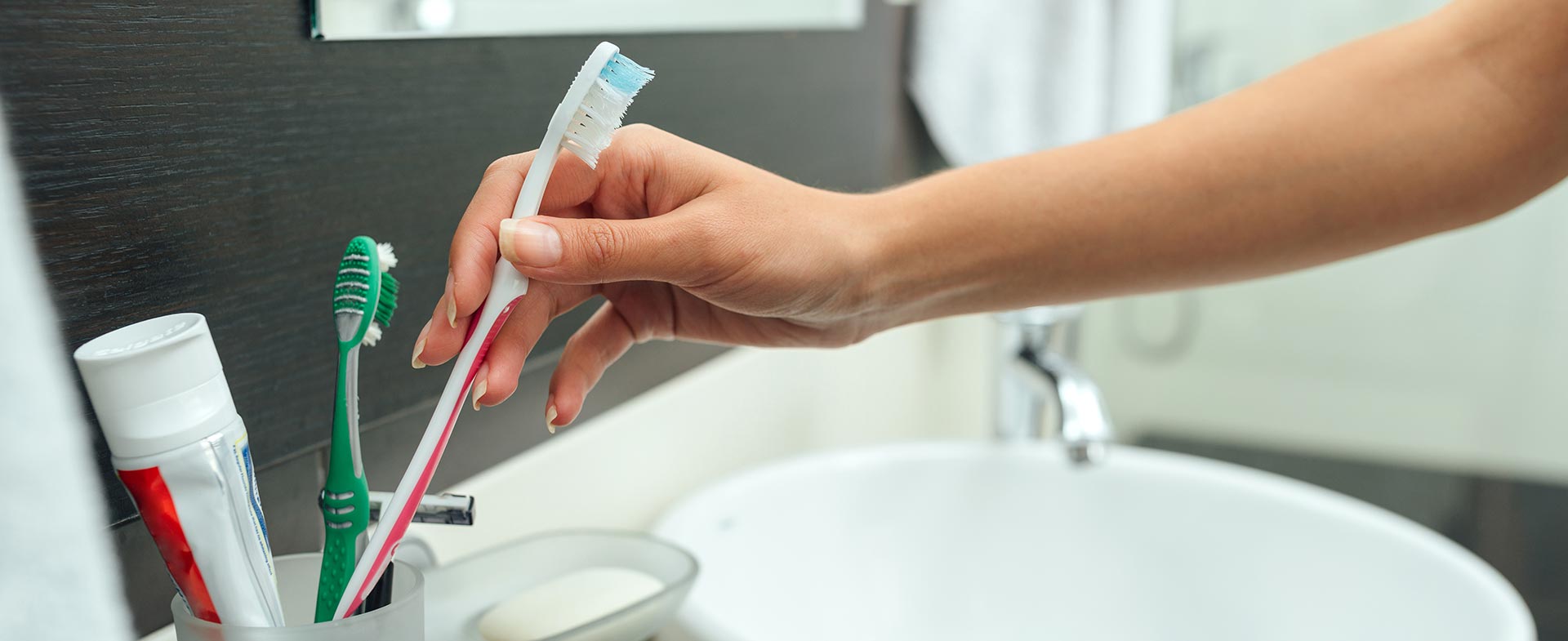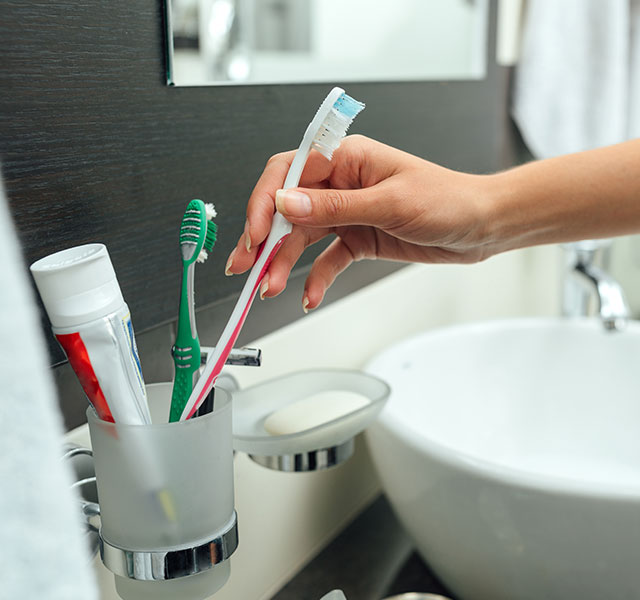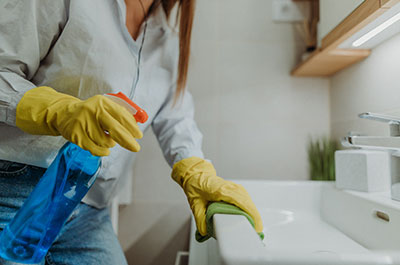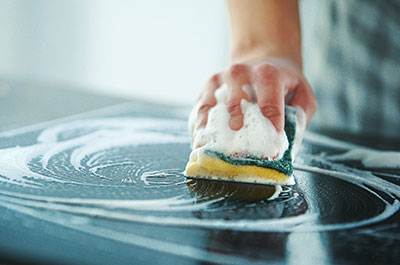Scientists estimate that our world is home to trillions of bacteria and viruses that we commonly refer to as germs. Bacteria and viruses are on almost everything we touch.
Not all bacteria and viruses are bad. In fact, most of what we come in contact with is non-threatening, and it is actually healthy for us to be exposed to these organisms. These environmentally friendly bacteria and viruses help train our immune system to distinguish what is "friendly" and what may cause an illness. Without this immune system training, we would get sick more frequently.
Common household and environmental items and surfaces can potentially accumulate unfriendly bacteria or viruses if they are not routinely cleaned.
Here's a look at 20 things that can quickly get you sick, along with suggestions to clean them to protect your health.
1. Bed sheets and pillows
Dust mites and bacteria can live in bed sheets and pillows, potentially triggering allergies and lowering your immune system's defenses. Tip: Wash your sheets weekly in hot, soapy water. Wash pillows once a year or replace them.
2. Toothbrushes
You naturally have bacteria in your mouth. (Don’t worry, everyone does.) And if you leave your toothbrush out in the open, you’re exposing it to even more bacteria. Tip: Rinse your toothbrush before and after every use. Try not to let the tip of the toothpaste tube touch your toothbrush. Keep it in a dry, covered place (like a toothbrush holder). Replace every three months or after you’ve been sick.
3. Cosmetics
When it comes to mascara, eye shadow, lip gloss and makeup brushes, you double dip every day. Eventually, it can contaminate the product, which could lead to an infection. Tip: Wash your makeup brushes about once a week. Refer to the packaging of your makeup for when you should replace different products. Most are only good for about a year.
4. The bathroom
Bathroom surfaces - door handles, faucets and toilet handles - hold a lot of germs. Tip: Disinfect all bathroom surfaces, including the toilet and door handles, daily and do a thorough cleaning of the whole bathroom at least once a week.
5. Refrigerator handles and drawers
Frequently touched refrigerator handles and drawers can carry bacteria from raw meat, contaminating food and leading to foodborne illnesses. Tip: Wipe handles and drawers down weekly with antibacterial cleaner or wipes.

6. The kitchen sink
Your sink can harbor bacteria and pathogens from food residue that can lead to foodborne illnesses. Tip: Clean and sanitize your sink regularly with antibacterial cleaner.
7. Cutting boards
Using a cutting board to cut raw meat and poultry can cause foodborne illnesses. Tip: Clean after each use with dish soap and warm water.
8. Kitchen sponges
You think you’re cleaning your dishes, but you might just be transferring bacteria from one plate to another. Tip: Before you use a sponge, microwave it for 60 seconds. Be sure to replace your sponges frequently.
9. Kitchen appliances
Appliances you use every day (blender, food processor, coffee maker) can hold bacteria and mold if not cleaned and maintained, potentially leading to food contamination and illness. Tip: Wipe down daily and clean removeable parts weekly in hot, soapy water.
10. Carpets and rugs
These can harbor dust mites, pet dander, mold and other allergens that can lead to respiratory issues. Tip: Vacuum often and clean regularly.
11. Pet bowls
Dirty food and water bowls can be breeding ground for mold and bacteria harmful to your family and your pets. Tip: Clean regularly with warm water and dish soup. Rinse thoroughly.
12. Remote control
The remote ends up in the darkest of places, like in between couch cushions and on the floor. Everyone in the house - and people who visit - touch it. Tip: Regularly wipe down both sides with a disinfectant wipe.
13. Children's toys
Children sometimes cough and sneeze in their hands and touch each other's toys, which can lead to bacteria and mold - and spread illnesses. Tip: Clean regularly or wipe with antibacterial wipes.
14. Handbags
Your bag carries your essentials - keys, cellphone and wallet. By the time you get home, it has been through a lot and touched many surfaces. Tip: Regularly wipe down purses or bags with an antibacterial wipe (if vinyl or leather) and don't put it on the floor.
15. Keys
Have you ever thought about what your car and house keys touch throughout the day? Tip: Regularly wipe your keys with antibacterial wipes, or spray with cleaner and wipe with a paper towel.
16. Cellphones
Your phone goes wherever you go, including the bathroom. Then it touches your hands and face. Tip: Throughout the day and before you go to bed, give your phone a quick clean with an antibacterial wipe on both sides.
17. Money
Paper currency and coins both carry germs and pathogens that you can't avoid if you are paying with cash. Tip: Whenever possible, pay with your debit or credit card. You can also wear gloves when handling money and wash your hands after paying for your items.
18. Grocery carts
A recent study found that cross contamination in shopping carts often happens due to improper handling of food, which can cause foodborne illnesses. Tip: Wipe the handle and around the cart with an antibacterial wipe before you shop. Bag any raw food to reduce the risk.
19. Gym equipment
Used and touched by people sweating while working out, gym equipment can be covered in bacteria and viruses. Tip: Before using benches, weights or machines at the gym, wipe them down with an antibacterial wipe.
20. Public bathrooms
From the toilet seat and door handles to the sink and soap dispenser, public bathrooms contain a lot of bacteria and viruses. Tip: Wash your hands thoroughly and use a clean paper towel to dry your hands. Use a paper towel to turn off the water and grab the door handle when you leave.
While it is not possible to completely avoid germs, the best defense is washing your hands with antibacterial soap and warm water for at least 20 seconds throughout the day. Or, when handwashing isn't available, use alcohol-based hand sanitizer that contains at least 60% alcohol. When using antibacterial wipes to clean surfaces, use one wipe per new surface.
Dr. M. Elizabeth Swenor leads the functional and lifestyle medicine team at Henry Ford Health. She sees patients at Henry Ford Medical Center in Bloomfield Township. Learn more about Dr. Swenor and read her articles here.



